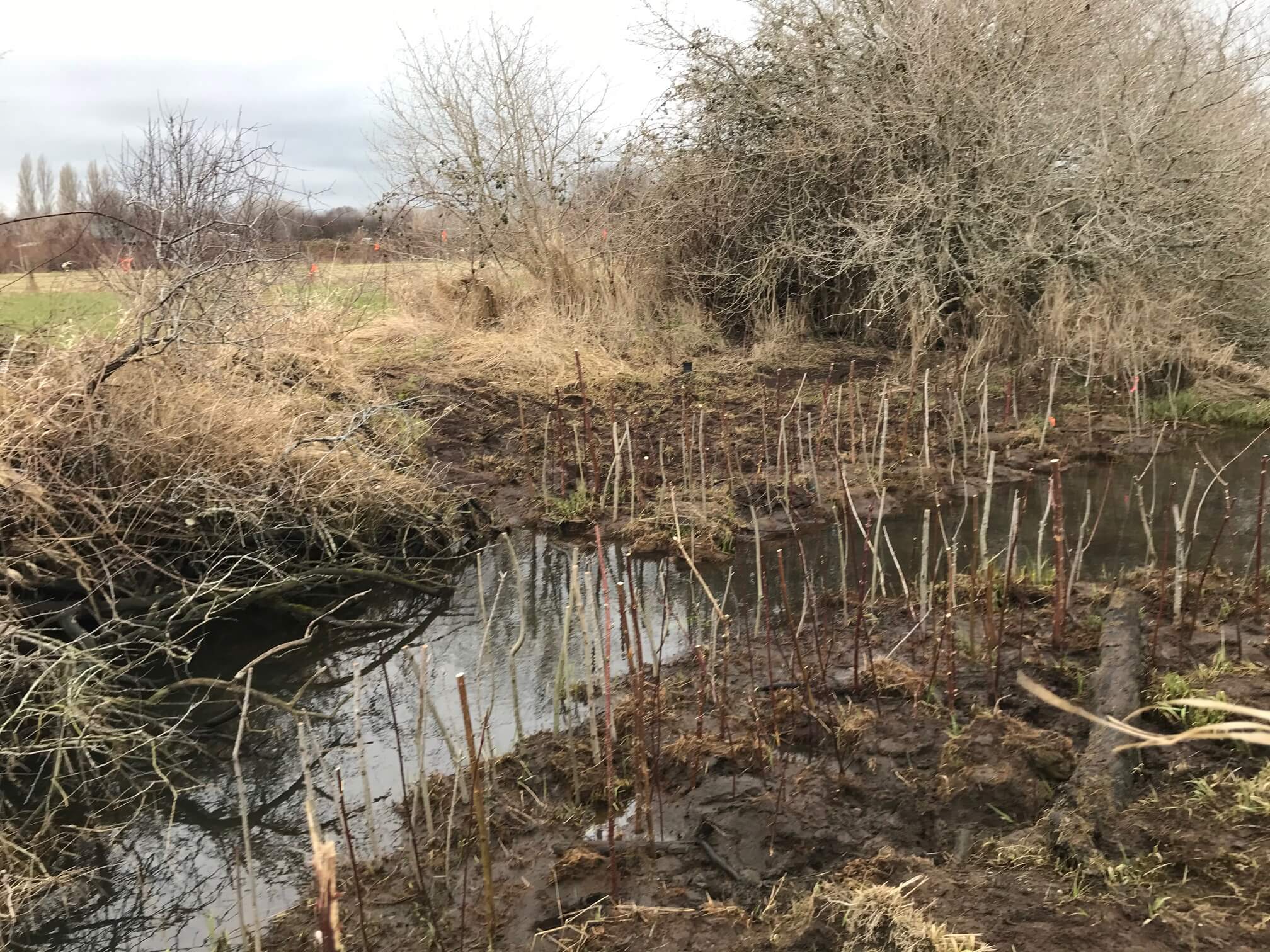Project Watershed Continues Restoration Work Along Mallard Creek
Back in February, Project Watershed and volunteers from Aecon Water Infrastructure Inc. planted over 100 native species along a section of Mallard Creek. The area has been infested with invasive reed canary grass, and Project Watershed has been working hard to restore the area and improve the habitat for fish and wildlife. Reed Canary Grass (RCG) out-competes other native vegetation due to its effective dispersal mechanisms and ability to shade out slower growing native species. Since 2004, it is estimated that the amount of RCG in the K’ómoks Estuary has tripled. RCG provides little value for native wildlife and insects, few species will eat it, and it grows too thickly for mammals or waterfowl to use for cover/nesting. Foraging juvenile salmon and trout have feeding opportunities reduced in areas dominated by RCG, and it constricts waterways thus preventing salmon from reaching spawning habitats. Planting native species provides the opportunity to shade out the RCG and prevent it from growing. The shade also helps keep stream water temperatures cool, which is beneficial to species that utilize the stream habitat.
The plants were generously donated by our supporters. We received a donation of salvaged red osier dogwood and another donation of over 100 alder, fir, salmonberry and willow saplings. This work is part of Project Watershed’s reed canary grass removal and riparian work. Thank you to Aecon volunteers and to our plant donors for your generosity and time!
Related Posts
Eelgrass Update
In the fall our restoration team surveyed the three eelgrass beds which were planted with the help of our volunteers back in June. The beds are looking healthy!
Kus-kus-sum: End of Season Wrap-up
Now that we have put the Kus-kus-sum site to bed for the winter, we wanted to give you all a little update on how things progressed this season – lots happened!
Kate McKeown
Meet our new Forage Fish Technician!
Greenshores at Dyke Road Park – Reimagining a Park
On September 20 and 21, over 20 people were on site to help with planting at the Comox Valley Regional District’s (CVRD) Dyke Road Park redevelopment project.
Gartley Beach Green Shores for Homes Project
Project Watershed is teaming up with the CVRD and the Stewardship Centre for BC to do some shoreline restoration at Gartley Beach in Royston.
Fall and Winter Forage Fish Sampling
We’re gearing up for the fall/winter season of forage fish sampling!



